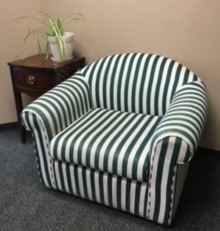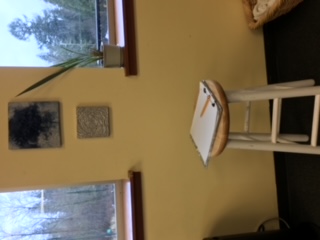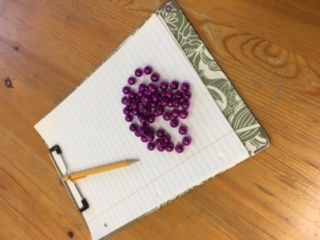Just 3 Minutes
“What would it take for you to do a daily observation?” I asked.
“My students would go crazy.” “I wouldn’t have time because of all the lessons.” “They would just talk all morning.” “The parents want me to report to them. I have to spend time entering data into the system each day.”
For these dedicated Montessorians, the daily practice of observation felt impossible to achieve. I knew they were observing all the time. I’d even given support for how to gather and use those momentary observations so they could become relevant data for themselves in guiding their students.
But when it came to simply sitting down to observe, it seemed impossible to achieve.

So I asked myself, What would make a daily practice so compelling that these teachers, and others like them, would commit to it and rarely let it go? What if I could make a suggestion that would feel like giving themselves the gift that observation can be? What if it could feel like genuine self-care that happens in the middle of any day, at the perfect moment for stepping outside the activity of the classroom, and taking a slow, deep, calming breath?
All it would require are the same things we provide for our students: an easily accessible, prepared environment that would call to us at the right moment in our day; a set of guidelines that everyone understands so that the activity could take place without interruption; and the good-feeling result that comes from activity well-chosen and completed with satisfaction.

I challenged these teachers to prepare a space, easily accessible and with full view of their room. They’d need a chair, even a special comfortable chair or rocker, that calls to them. Place nearby, where they can easily be taken up, a special journal and a pen that feels just right under the fingers. Have a signal to the students, a sign or special necklace that says, “I’m not available right now.”
“Once your space is ready,” I coached, “sit down with the students. Show them your special signal that says you are not to be disturbed. Let them know what they can do when you are in your observation space: Ask a Friend. Ask themselves. Be patient.”
Tell them how you will silently remind them to return to their work: with a smile and a gaze that goes back to your writing, that goes back to your work.
Then send them to their work and plan for your practice. Take a seat. Gather your journal and pen. Take a deep, calming breath. Scan your room. Just sit. You don’t need to observe. Just allow yourself the space to be quiet.

The first time in your space, plan only to sit for a few minutes. Know that in 2 or 3 minutes, nothing can happen that will be earth shattering, that would require your immediate response, that your assistant can’t handle. Allow yourself to let go of the need to intervene. Give yourself permission to watch what happens when you don’t respond.
When students come to you and put their hand on your shoulder, simply point to the signal, smile and return your gaze to your journal. Allow yourself to stay put in your quiet space. When your 2 or 3 or 5 minutes are up, quietly close your journal. Take another long, slow, deep breath, and prepare to return to your tasks.
This moment of quiet is about you learning to trust that you can take space during your busy morning. It’s about becoming aware of how your busy-ness may be an interruption-an interference- to the activity and concentration of your students. This moment of quiet can give you the mental and physical serenity that will permeate your classroom, modeling a calmness that students will take up for themselves.
In this quiet, you will have refreshed yourself. You may have made some wonderful observations, too, but mostly you will have taken some time for you. A gift in the middle of your morning. You’ve found that you can get that refreshment within your classroom, and, as you extend the time little by little, you’ll come to discover that you are regularly observing…and it feels wonderful!
You know what else? In this quiet space, you helped your students grow confident that they can make it through a moment without you. You’ve gifted them with self-reliance, patience, and peace.